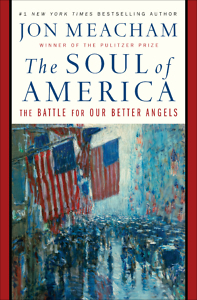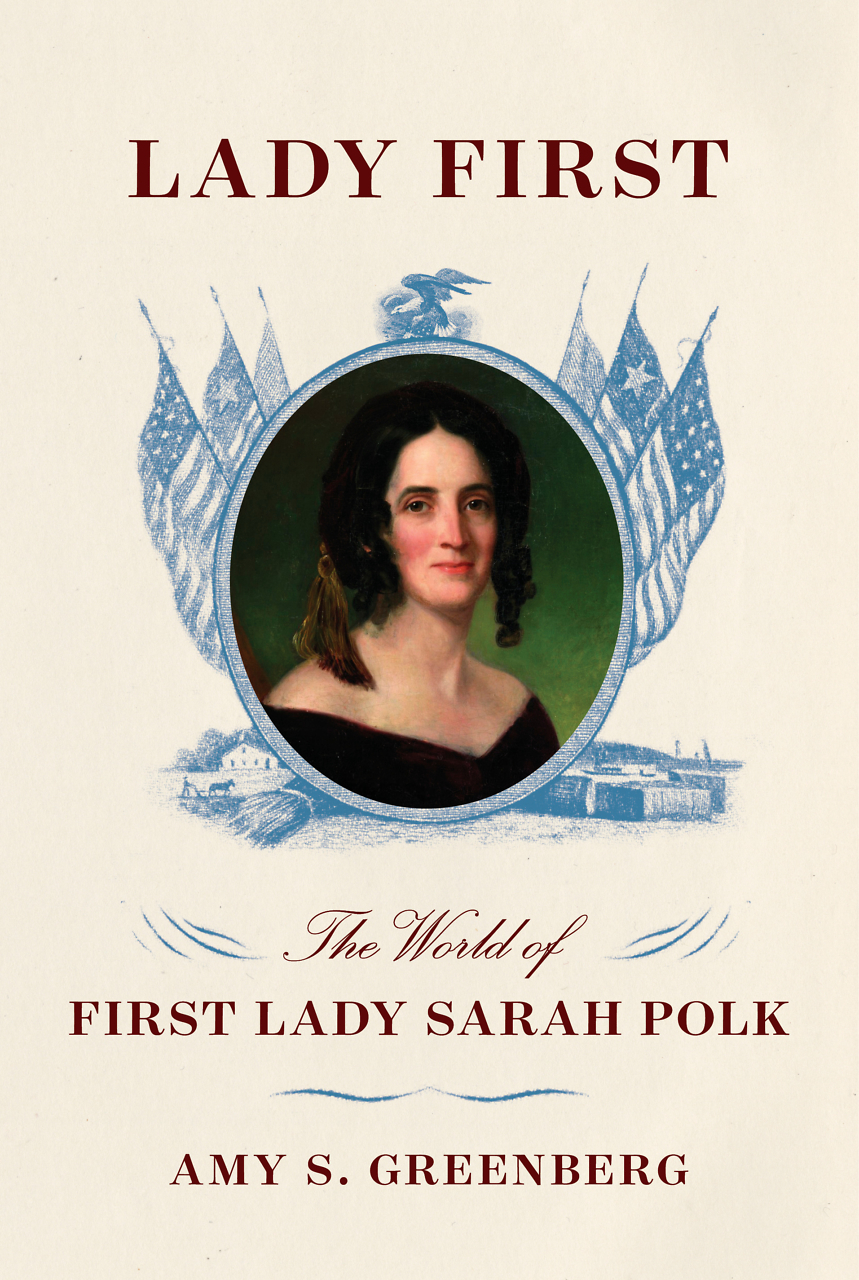The Mystic Chords of Memory
Jon Meacham sees a hopeful future in America’s past
“The Bushes governed in congeniality and grace,” Jon Meacham noted in his eloquent eulogy for Barbara Bush. “Instinctively generous, Barbara and George Bush put country above party, the common good above political gain, and service to others above the settling of scores.”

That Meacham felt the need to emphasize this point, to praise an American political dynasty for behavior that should be second nature to every one of us, is further evidence—as if any were needed—that America is in crisis, our political system strained to the breaking point, our national identity at risk. But as Meacham beautifully documents in his latest book, The Soul of America: The Battle for Our Better Angels, we have been here before. America has experienced turmoil, bitterness, even bloodshed throughout our history, but the fact that we have survived these trials and improved our lot is crucial context for understanding the times in which we live.
A Chattanooga native, Sewanee graduate, and Nashville resident, Meacham is a Pulitzer Prize-winning biographer of presidents, including Thomas Jefferson, Andrew Jackson, Franklin Roosevelt, and George H.W. Bush. In The Soul of America he examines some of the most difficult times of our history, primarily through the actions of the presidents on whose watch they occurred. This approach not only plays to Meacham’s strengths as a biographer, but also pointedly exposes the failings Meacham perceives in the current occupant of the White House. Thus, Meacham reminds his readers that Roy Cohn, chief consul to Senator Joseph McCarthy, one of America’s most divisive demagogues, was mentor to an ambitious real-estate developer from New York. “And,” Meacham notes, “Roy Cohn was always there for Donald Trump.”
Current politics aside, Meacham’s history lesson is based on the premise that “the better angels of our nature”—to quote Lincoln’s first inaugural address—have usually prevailed, even if prevailing takes a while. Those angels were often forced to wait in the wings during long periods of struggle for improvements to the republic, including the fights to end slavery, extend the vote to women, and ensure that all Americans, regardless of color, enjoy the same rights. “One point of this book,” Meacham notes, “is to remind us that imperfection is the rule, not the exception.”
 The Soul of America is, therefore, a compendium of some of America’s greatest failings, from the Alien and Sedition Acts through the rise of the KKK, McCarthyism, and the segregation that led to the odd-bedfellows relationship of Dr. Martin Luther King Jr. and Lyndon Baines Johnson. These failings, Meacham notes, were due to the age-old battle of fear versus hope, in which fear often enjoys initial success, especially when appeals to fear are delivered by charismatic personalities. But when the leader of the nation, in the person of the president, rejects the fear-mongers, Americans have usually responded to the message of hope.
The Soul of America is, therefore, a compendium of some of America’s greatest failings, from the Alien and Sedition Acts through the rise of the KKK, McCarthyism, and the segregation that led to the odd-bedfellows relationship of Dr. Martin Luther King Jr. and Lyndon Baines Johnson. These failings, Meacham notes, were due to the age-old battle of fear versus hope, in which fear often enjoys initial success, especially when appeals to fear are delivered by charismatic personalities. But when the leader of the nation, in the person of the president, rejects the fear-mongers, Americans have usually responded to the message of hope.
In one of his most effective of examples of the victory of hope over fear, Meacham describes how Johnson used the power of the presidency to advance civil rights, pushing back against the fear that recognizing the rights of minorities would somehow diminish the rights of the majority: “Now, the people that would use us and destroy us first divide us,” Johnson said. “If they divide us, they can make some hay. And all these years they have kept their foot on our necks by appealing to our animosities, and dividing us.”
The politics of fear are often spread through an unwitting media, Meacham notes, manipulated by people who understand the psychology of the public and the long arm of technology. From D.W. Griffith’s use of the new medium of motion pictures to spread a narrative of fear in Birth of a Nation straight through to the present day, every form of mass media has been employed to divide, as much as unite, America. Joseph McCarthy was a “master of false charges, of conspiracy-tinged rhetoric, and of calculated disrespect for conventional figures (from Truman and Eisenhower to Marshall),” Meacham writes. “McCarthy could distract the public, play the press, and change the subject-all while keeping himself at center stage.”
It is both disturbing and reassuring that many passages in The Soul of America could, by a simple substitution of names, apply to current events. The old fears cling to us like a bad habit, but we the people have repeatedly suppressed our fears long enough to achieve truly great improvements in our imperfect union. Meacham’s is a positive message, one of hope that America’s soul will not be lost in our fears, that our “love of fair play, generosity of spirit, of reaping the rewards of hard work, and of faith in the future” will ultimately triumph.

A Michigan native, Chris Scott is an unrepentant Yankee who arrived in Nashville more than twenty-five years ago and has gradually adapted to Southern ways. He is a geologist by profession and a histor


